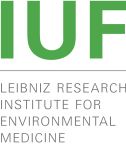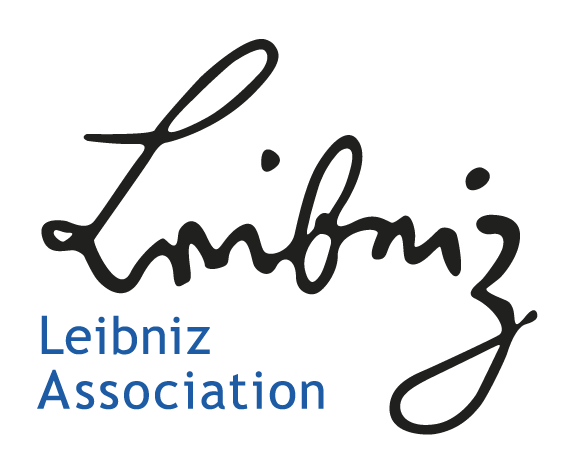The German Research Foundation (DFG) is funding a new research unit on “Understanding aryl hydrocarbon receptor (AHR) signaling in skin disorders” (FOR 5489). In this research unit, coordinated by the IUF – Leibniz Research Institute for Environmental Medicine (speaker: Prof. Jean Krutmann), scientists of the IUF and the Medical Faculty of the Heinrich Heine University Düsseldorf (three subprojects each) as well as scientists of the LIMES Institute of the University of Bonn and the Medical Faculties of the Universities of Magdeburg and Oldenburg (one subproject each) are collaborating.
Düsseldorf 06/10/2022 – Signal transduction in cells plays a central role and can be targeted for disease prevention and therapy. One player that receives signals and subsequently acts as a switch for transcription of genetic information is the aryl hydrocarbon receptor, short AHR. The AHR signaling pathway is increasingly seen as an interesting therapeutic target.
Scientists at IUF have shown that the AHR is present in virtually all skin cells and plays an important role in skin health. It is still unclear why the activation of the AHR sometimes has a positive effect on skin health and sometimes a negative one. It seems that the AHR has two faces, reminiscent of the Roman god of beginnings and endings, Janus. This is where the research unit “Understanding aryl hydrocarbon receptor (AHR) signaling in skin disorders” comes in. It starts from the hypothesis that the outcome of AHR activation (good or bad for the patient) depends on the context, i.e. whether the skin is healthy or pre-damaged by inflammation or environmental influences.
In order to test this hypothesis and to determine the corresponding influencing variables, an ambitious interdisciplinary research program has been developed in which a broad spectrum of methods is used, including investigations in 3D skin models, samples from biobanks and mouse models. In addition, reference molecules will be used in the individual subprojects, enabling a final comparative bioinformatic analysis. The focus of the work is on chronic inflammatory skin diseases such as neurodermatitis and also Lupus erythematosus, white and black skin cancer, and adverse drug reactions.
Specifically, the nine individual projects of the research unit will explore the role of the AHR pathway in the aforementioned skin diseases, with particular emphasis on skin-gut-microbiome interactions, the role of retinoic acid and selected pharmaceuticals, the influence on malignant transformation, and the relevance of the AHR repressor. “We would like to better understand the precise role of the AHR signaling in a specific clinical context, and translate this information into innovative preventive and therapeutic strategies,” says Professor Jean Krutmann, scientific director of the IUF. The research unit will start its work in January 2023 for four years and will receive a total funding of approximately 5 million euros. An extension for another four years is possible. Research units enable researchers to pursue current and pressing issues in their areas of research and take innovative directions in their work.
The 9 subprojects whose results will be combined and analyzed comparatively are:
Project 1: Unravelling the role of AHR signaling in microbe-host interaction in the skin, Prof. Dr. Bernhard Homey, Department of Dermatology, University Hospital Düsseldorf, Medical Faculty of the Heinrich Heine University Düsseldorf
Project 2: Cell type-specific regulation and function of the AHRR in skin inflammation and allergy, Dr. Heike Weighardt, LIMES Institute, Faculty of Mathematics and Natural Sciences of the University of Bonn
Project 3: AHR-mediated mechanisms to overcome vascular barriers in autoimmunity, Prof. Dr. Sven Meuth, Department of Neurology, University Hospital Düsseldorf, Medical Faculty of the Heinrich Heine University Düsseldorf
Project 4: AHR as a master regulator in cutaneous and systemic autoimmunity, Prof. Dr. Karin Loser, Institute of Immunology, Faculty VI: Medicine and Health Sciences, Carl von Ossietzky University of Oldenburg
Project 5: The role of AHR for the gut-skin inflammatory axis, Prof. Dr. Charlotte Esser, IUF – Leibniz Research Institute for Environmental Medicine, Düsseldorf
Project 6: Crosstalk between AHR signaling and retinoids in skin, Prof. Dr. Jean Krutmann, IUF – Leibniz Research Institute for Environmental Medicine, Düsseldorf and Medical Faculty of the Heinrich Heine University Düsseldorf
Project 7: From actinic keratosis to invasive squamous cell carcinoma: Impact of AHR and p27KIP1 on malignant transformation, Dr. Thomas Haarmann-Stemmann, IUF – Leibniz Research Institute for Environmental Medicine, Düsseldorf
Project 8: Role of the AHR pathway in UV-induced initiation and progression of melanoma and in resistance to therapy, Prof. Dr. Thomas Tüting, Department of Dermatology, University Hospital Magdeburg, Medical Faculty of the Otto von Guericke University Magdeburg
Project 9: Role of the AHR in cutaneous adverse drug reactions, Dr. Stephan Meller, Department of Dermatology, University Hospital Düsseldorf, Medical Faculty of the Heinrich Heine University Düsseldorf



